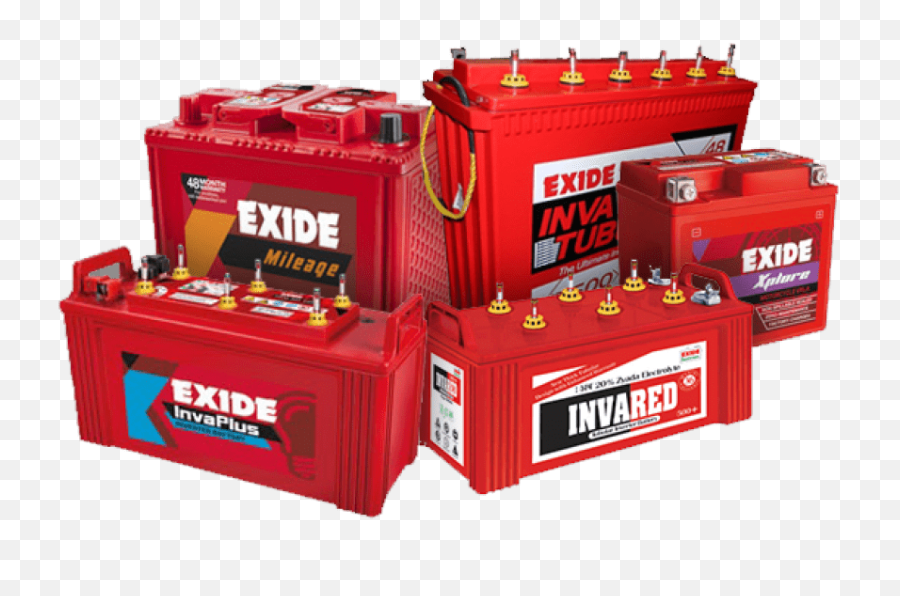Powering the Future: The Untapped Potential of UPS Batteries
Powering the Future: The Untapped Potential of UPS Batteries
Blog Article

In an increasingly digital world, the demand for reliable electricity has never been greater. As businesses and homes alike become more dependent on technology, the need for uninterrupted power supply systems, or UPS batteries, has surged. These batteries not only serve as a safeguard against power outages but also help to ensure the smooth operation of critical equipment during unexpected disruptions. However, there remains a vast realm of untapped potential within the capabilities of UPS batteries that could revolutionize how we think about power management.
The future of energy storage is looking more promising with advancements in UPS battery technology. Traditionally viewed as simple backup solutions, these batteries have the potential to play a pivotal role in energy sustainability and efficiency. As innovations continue to emerge, UPS batteries might soon become key players in not just preventing downtime, but also in optimizing energy use and supporting renewable energy initiatives. It's crucial to explore the possibilities that lie ahead, as harnessing the full potential of UPS batteries could reshape our approach to energy consumption and reliability.
The Role of UPS Batteries in Modern Infrastructure
UPS batteries play a crucial role in ensuring the reliability and continuity of power in modern infrastructure. As businesses and critical facilities increasingly rely on technology, the need for uninterrupted power supply systems has grown immensely. These batteries provide emergency power during outages, allowing essential equipment to remain operational. They serve as a safeguard against data loss, equipment damage, and extended downtime, making them indispensable in sectors such as healthcare, finance, and telecommunications.
Uninterrupted Power Supply
In data centers, UPS batteries are vital for maintaining uptime and protecting sensitive information. A brief power interruption can lead to significant disruptions and financial losses. With the integration of advanced battery management systems, these batteries not only support energy needs during outages but also optimize performance and lifespan, highlighting their importance in a rapidly evolving technological landscape. As infrastructure continues to digitize, the reliance on UPS batteries will only deepen.
Moreover, the environmental impact of UPS batteries has begun to shift the narrative toward sustainability. With advancements in battery technology, including lithium-ion solutions, there is potential for these systems to complement renewable energy sources. By integrating UPS batteries with solar or wind energy systems, organizations can improve energy efficiency and reduce their carbon footprint while ensuring that operations remain uninterrupted. This synergy is driving a new era of energy management, positioning UPS batteries as key players in the future of infrastructure.
Innovative Uses Beyond Power Backup
UPS batteries are traditionally associated with providing backup power during outages, but their potential extends far beyond this role. One innovative application is in the realm of renewable energy systems. By integrating UPS batteries with solar power setups, homeowners and businesses can store excess energy generated during peak sunlight hours. This stored energy can then be utilized during non-sunny periods or power outages, effectively enhancing energy independence and contributing to more sustainable energy consumption.
Another exciting use for UPS batteries is in electric vehicle charging stations. As the demand for electric vehicles continues to rise, the ability to quickly charge these vehicles is becoming increasingly important. UPS batteries can be employed in charging stations to store energy during off-peak hours when electricity rates are lower. This stored energy can then be released during peak hours, ensuring efficient and timely charging without overloading the grid. This application not only supports electric vehicle adoption but also helps to manage energy consumption more effectively.
Additionally, UPS batteries are finding roles in various smart technologies, particularly in smart homes and IoT devices. By providing reliable power to smart hubs and sensors, these batteries ensure that critical systems remain operational even during power failures. This functionality enables homes to maintain security systems, environmental controls, and emergency communication devices, thus increasing the resilience and safety of residential and commercial spaces. The integration of UPS batteries into these systems showcases their versatility and the many ways they can contribute to modern living.
Sustainability and Recycling of UPS Batteries
As the demand for reliable power supply continues to rise, the sustainability of UPS batteries becomes increasingly critical. These batteries play a vital role in maintaining power during outages, but they have a significant environmental impact if not managed properly. Awareness of this issue is growing, prompting manufacturers and consumers alike to seek sustainable solutions that reduce waste and promote a circular economy.
Recycling is essential to mitigating the environmental footprint of UPS batteries. Many battery types contain valuable materials such as lead, nickel, and lithium that can be recovered and reused in new products. Establishing comprehensive recycling programs not only diverts waste from landfills but also conserves natural resources and minimizes pollution. Companies are beginning to adopt take-back initiatives, ensuring that used batteries are processed responsibly and that hazardous materials are handled correctly.
Innovations in battery technology and recycling processes further drive sustainability efforts. Advancements such as second-life applications for lithium-ion batteries and improved recycling techniques enhance the lifecycle of UPS batteries. By investing in these technologies, businesses can not only reduce their environmental impact but also contribute to a more sustainable future. Embracing these practices will be key in empowering the future of power supply while protecting our planet.
Report this page